By Ariel McLain, Garrett Morgan School of Science, Cleveland, OH
HAZING!!!! Commonly known as a traditional activity for a group, club, or sorority initiation. You might recognize it when you see that one person behind the football team, carrying their books, or someone wearing an embarrassing outfit. You just thought about it,
didn’t you? You probably laughed at that person. Well guess what, that was the point.
“We all had to do it, man” or “You want to be in or not?”
Surprisingly, no one sees the issue that lie within this “normal” activity. “We all had to do it, man” or “You want to be in or not?” In technical terms, hazing is “any situation created intentionally that causes embarrassment, harassment or ridicule and risks emotional and/or
physical harm to members of a group or team, whether new or not, regardless of the person’s willingness to participate.”, according to HazingPrevention.Org. Looking closely, you can see this as an accepted form of bullying. Surprising, is it not. Why have we not noticed this before? These situations go by our faces all the time, whether it is on TV, in school, or just in everyday life. We see the pledges of the sorority, the new member of the football team, and even the kid walking with the popular clique in the neighborhood. We brush it off as a normal part of social acceptance, or by saying everyone has gone through this at least once in their life. Some think that it is worth it, but at what cost?
Let’s say that an initiation requires you to drink a weird mixture; who’s to say that after you drink that, you don’t end up terminally ill? Some might have you steal something; you could end up in major legal trouble. It could be that you have to put on an embarrassing outfit and stand in front of the whole school; being in the age of technology can make a moment like that last forever. In some cases, this could lead to a horrible high school memory or even lead to a person taking their own life, and in the age of technology, this is very likely to happen.
Let’s go back to the bullying part of this. What happens in those situations? A person is repeatedly picked on, laughed at, and talked about, after someone has embarrassed them. We see this, we walk pass this, and when that person has died, we say that they were such a good person, just not good enough to help avoid the situation. Every time we walk past someone who is being bullied or picked on, we become a part of the problem.
I have experienced this first-hand. Back in middle school, I was being bullied so bad that when our 8th grade graduation came, I had been through counseling after the students tortured me every day, which lead me to repeatedly hurt myself, and scared my mother with my thoughts. It continued on to scare my grandmother, along with my aunts and uncles. The effect of one event can cause a person to be bullied, which doesn’t only affect them, but sometimes their whole family. Still, we accept this as a normal life event.
It’s surprising how something that has been viewed as common could cause this much damage to someone’s life. Why has this been allowed to happen? Why have we not changed this? The next time we walk pass someone being humiliated or picked on, are we going to walk past or are we going to do something about it. This simple decision can affect someone’s life and the lives of their family.


